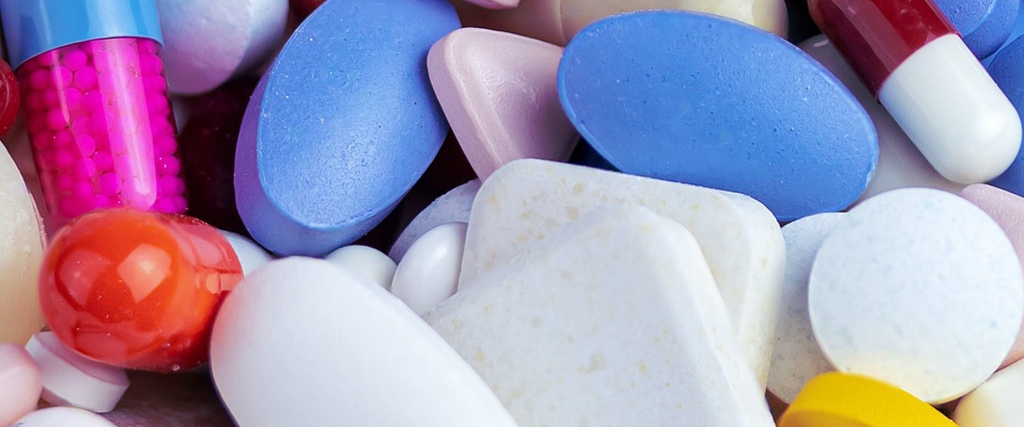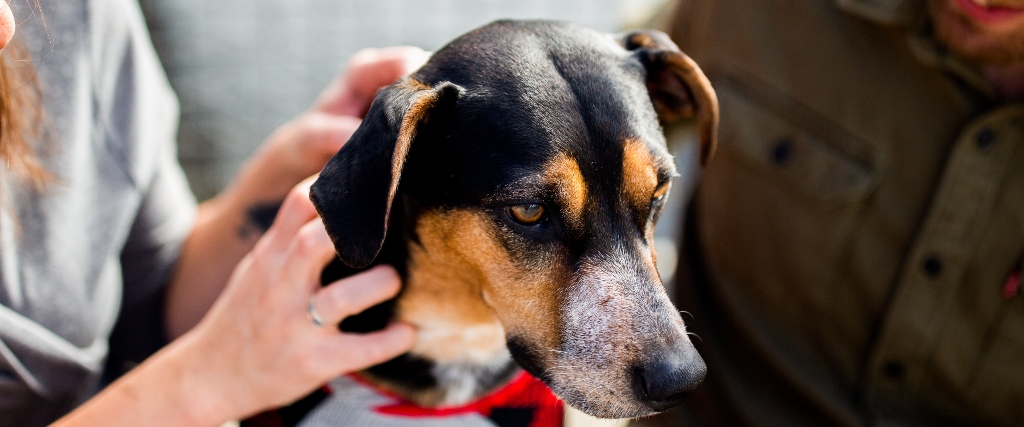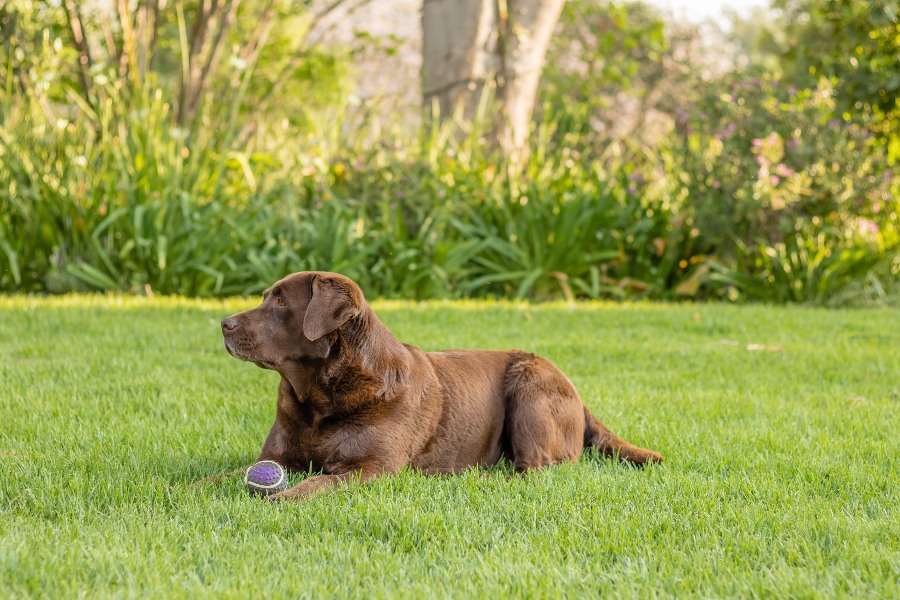Dog poisoning is more common than you might think. According to Vets Now, pet poisonings are one of the most common emergencies their vets have. Roughly, 9 out of 10 of the poisonings they see happen while pets are in their own home.
During certain seasons, they see cases go up as a result of dogs consuming certain foods. The range of everyday substances that are poisonous to your pet as well as the curious nature of dogs that tend to explore objects by eating them add to the frequency of unfortunate, and often tragic poisoning accidents.
As a dog-owner, it is vitally important to know what is poisonous to your pet, what are the symptoms of poisoning and what to do in the case that your pet is poisoned.
We’ve put together a complete guide to best equip you with the tools on what to do if your dog is poisoned, starting with a few basic steps to follow.
Contents: All you need to know about dog poisoning.
- Substances that are poisonous to your dog
- How to tell if your dog is poisoned
- What to do if your dog is poisoned
- How is dog poisoning diagnosed?
- How to prevent my dog from being poisoned
- Vet medical costs for dog poisoning

Substances that are poisonous to your dog
Many of the substances that are poisonous to your dog are self-evident and often poisonous to humans too (like rat poison). However, there is a plethora of dangerous substances that you may not know are poisonous to your dog.
Here is a list of some of the most common substances that could poison your dog:
- Chocolate (the higher the cocoa % the more dangerous it is)
- Mouse and rat poisons (rodenticides)
- Anti-inflammatory medications
- Snail bait (very toxic, and dogs love the taste. They actively will seek it out)
- Mind-altering drugs e.g. marijuana, cocaine, ecstasy, etc
- Mushrooms, onion, garlic
- Certain algae
- Cycad seeds
- Anti-freeze
- Xylitol (sugar-free gum, sweets, & more)
- Grapes & raisins
- Antidepressant medications
- Medications such as paracetamol (e.g., Tylenol or Panado), Ibuprofen, Voltaren, Myprodol, etc
- Vitamins & supplements such as a vitamin D
- Stimulant medications (e.g. for ADD/ADHD)
- Fertilizers
- Household cleaning products
- Fungi, yew trees, acorns, and spring bulbs
- Alcohol and tobacco
- Toxic plants, including syringa, iris, poinsettia
Make sure to avoid and keep these substances away from your dog. Dogs are clever and will sometimes hunt for these foods as they smell and may taste nice, so stay vigilant!
The large amount of potentially poisonous substances could make you as a dog-owner worry. It is possible to keep your dog safe, happy and healthy, though. Learning about what is potentially dangerous is a helpful first step in doing so.
Different substances that are poisonous to your dog draw out different reactions. It is important to understand the signs of dog poisoning so that you can identify poisoning and know what to do if your dog does get poisoned.
How to tell if your dog is poisoned
Even if you do everything to prevent your dog from being poisoned, there is still a risk that they will consume something poisonous to them. If that does happen, knowing the symptoms will help you respond in the best way.
Symptoms can vary from vomiting and breathing difficulties to drooling. Keep in mind that swallowed poisons, for example, result in different symptoms to your dog to those after having inhaled something poisonous. Poisons that have come into contact with your dog’s skin can result in different reactions, such as irritation and pain. An elevated heart rate may also be a general symptom of poisoning. Others include weakness (and even collapse), muscle tremors and reduced pupil size
Knowing the different symptoms may help you have a better idea of what has poisoned your dog. We have divided these into 6 main groups of symptoms.
Gastrointestinal poisoning symptoms
Eating poisons from rubbish or a poisonous plant can result in a loss of appetite or vomiting in your dog. Certain medications, chocolate and toxic plants can also result in diarrhoea.
Seizures and neurologic poisoning symptoms
If your dog is experiencing seizures or neurologic symptoms, some of the household items that may have caused the reaction are;
- toxic pesticides
- tobacco
- medical drugs
- alcohol
- marijuana
- gasoline
- drain cleaners
- dishwasher detergent
- furniture polish
These symptoms can also be caused by certain frogs, spiders, snakes and plants. If you live in a rural area this risk is increased greatly.
Bleeding and anemia from poisoning
Rat and mouse poisons can cause bruising, nosebleeds, excessive or reduced thirst, blood in the stool and anemia in your dog. Large amounts of onions, garlic, sweet clover, and certain plants can cause the same symptoms.
Heart symptoms from poisoning
There are certain medications and plants that can cause an irregular heartbeat (also known as a heart arrhythmia) and other cardiac problems in your dog.
Some of the plants that can cause these symptoms are oleander, milkweed, jimson weed, kalanchoe, and mountain laurel.
Kidney symptoms from poisoning
If your dog consumes anti-freeze or certain plants they could experience kidney failure and the inability to produce urine.
Dogs, unfortunately, find anti-freeze quite tasty. Anti-freeze is extremely toxic, causing kidney failure that is often fatal in just a few days. Your dog may appear to feel better and then experience kidney failure after a few days. If your dog consumes anti-freeze, it is important to react quickly by taking them to your vet, and not wait for symptoms to show.
Plants that can cause these same symptoms are caladiums, pigweeds, dieffenbachias, Easter lilies, and philodendrons.
Liver symptoms from poisoning
Plants like tansy ragwort and rattlebox as well as many medications can cause liver damage to your dog.
If your dog is showing any poisoning symptoms the next step is to treat them, and prevent any continued exposure.
What to do if your dog is poisoned
- Stay calm
- Identify the substance that poisoned your dog
- Move the substance away from your dog
- Take your dog to the vet
- Bring any information of the poison to the vet
Stay calm
The worst thing you could do if your dog is showing signs of being poisoned is to panic.
Remember poisoning, if handled correctly, is not necessarily fatal. When you see symptoms of poisoning in your pet take a breath and remain calm. When you are calm the next step is a lot easier.
Identify the substance that poisoned your dog
To identify the substance that poisoned your dog first take a look around for any evidence of packaging, wrappers, damage to plants, or anything else out of the ordinary. You can also check their symptoms to try and narrow down what the source of poisoning may be. Any swelling and inflammation may indicate a bite or sting.
Move the substance away from your dog
Once you have identified the substance, make sure that you remove it from your dog’s reach. You will need to get in contact with your vet immediately and while you’re on a call, the last thing you want is for them to consume more poison.
Take your dog to the vet
“Time is of the essence”, says the National Society for the Prevention of Cruelty to Animals (NSPCA).
Remember to approach your pet carefully. Even the friendliest of dogs may scratch or bite when they are in pain. It’s safer to approach your pet from the side, making sure to avoid their mouth.
You shouldn’t hug your pet when they are in pain, as you could put yourself in danger of being bitten and cause them even more distress. When moving or transporting an injured pet, make sure to avoid moving their head, neck,or spine. If they are disorientated, you should keep their head level.
Dogs should be on a well-fitted lead if they are able to walk. Smaller dogs should be placed in a secure, well-ventilated enclosed carrier. A familiar blanket will be helpful to bring, especially useful for carrying if they are large and collapsed or seizuring. Secure your dog using a seatbelt, if it is possible to do so. It is natural for your pet to feel nervous in this situation, so help keep them calm by bringing a toy that has the familiar scent of home. Take deep breaths and remember to focus on driving. Make sure you know the directions to the clinic. If possible, take someone else with you for support.
Bring any information of the poison to the vet
The trade name, the active ingredient, the amount your dog has ingested, and when it was ingested are all important to tell your vet. Make sure to bring a sample, photo, or the packaging of what poisoned your dog, if possible. This will help them quickly diagnose the problem and find the right solution to help treat your dog.
How is dog poisoning diagnosed?
The first priority will be to make sure that your dog is stable before doing any diagnostic tests.
The vet will look into what caused the poisoning. This is why it is important to try to identify this yourself and to bring a sample of it with you. They will assess your dog’s condition before deciding on a treatment, which may include attempts to neutralise or remove the poison.
How is dog poisoning treated?
There are a variety of ways that a vet might treat your dog for poisoning. There are antidotes for certain poisons like snake venom, some rat poisons and anti-freeze. Treatment can also include endoscopy, removing poisonous objects, inducing sickness and if needed, surgery.
A vet will ensure to treat your dog’s symptoms while trying to minimise damage to their organs.
Once your dog is home safe, you will likely have to follow up with additional medicines and detoxifying substances to ensure they pass all of the poison.
Follow the guidance of your vet
Once your dog is stabilised, and has been treated, your vet will probably give you further at-home guidance. This may take the form of follow-up medication and visits.
How to prevent my dog from being poisoned
In line with the saying “prevention is better than cure”, the best place to start as a pet-owner is to do what you can to prevent your dog from being poisoned in the first place.
Keep poisonous substances out of reach
Don’t leave chemicals or poisons lying around. When you are cooking or eating, make sure that potentially dangerous food does not drop and get eaten by your dog.
Buy pet-friendly products (and plants!)
Use products in your home and garden that are natural, and pet-friendly. Don’t forget to make sure that the plants and flowers you plant in your garden are not harmful to pets.
Make sure everything in your home or garden that is easily accessible to your dog is safe for them to consume.
Obviously, in order to prevent your dog from accidental poisoning, knowing the substances that are dangerous is key.

Vet medical costs for dog poisoning
While the health and happiness of our furry friends is always the priority, the worry of the cost of vet bills isn’t far behind.
For certain conditions or accidents, you can pay more than R40 000! This cost varies based on the treatment, your vet’s rates if ongoing chronic care is needed, whether your dog needs to sleep overnight at the vet, and complementary wellness treatments such as rehab.
Accidental dog poisoning is unfortunately rather common and something that can happen very easily, and repeatedly. A dog poisoning situation is stressful enough without worrying about the cost of the treatment!
This is why pet insurance offers invaluable peace of mind. Watch out for some insurers that do not cover the cost of illness treatments unless the pet is hospitalised overnight. Also, others may apply a vet visit limit.
MediPet’s popular Accident plan provides comprehensive cover for treatment of dog poisoning and a range of other unexpected vet costs for your dog (or cat) up to R20 000 per year, for only R195 per month.
Visit our pet insurance plan page to find out more and compare the different options. Get in touch with us today and let us know if we can partner with you to get your pet covered.
Medipet Animal Health Insurance Brokers (Pty) Ltd (MediPet) (FSP Licence No: 15491) is underwritten by Renasa licensed non-life insurer & FSP.


